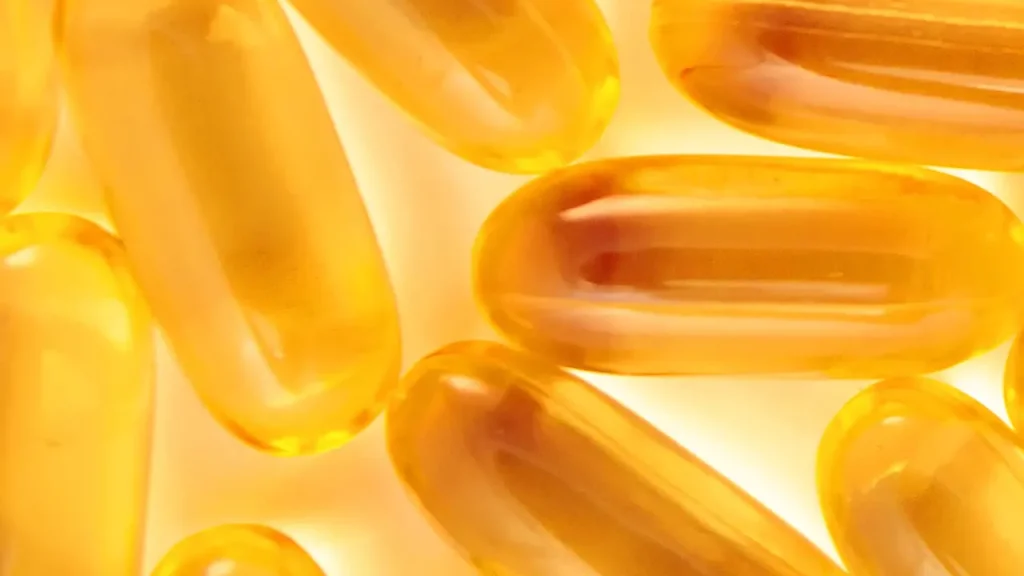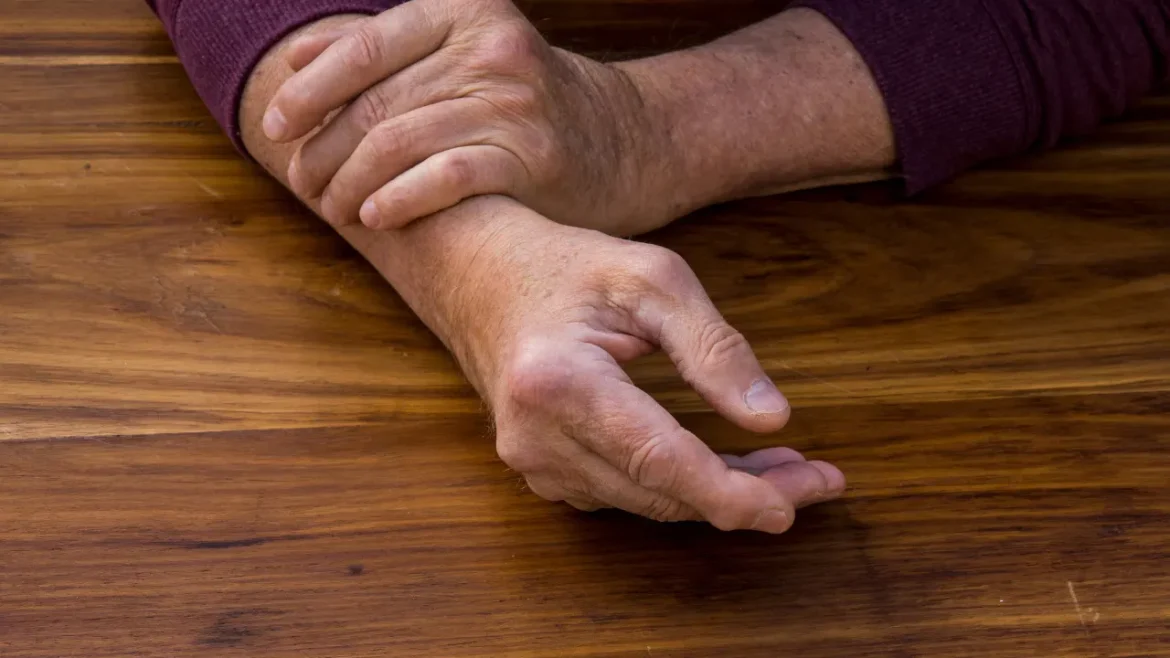Description
People who have psoriasis, a persistent inflammatory skin illness, may develop a specific type of inflammation — psoriatic arthritis (PsA). About 30% of those who have psoriasis experience this. It can cause serious impairment and worsen quality of life. It is essential for the best management of PsA to understand the causes, aggravating factors, and available treatments. PsA is marked by inflammation within the ligaments, tendons, and joints, which causes discomfort, edema, and stiffness. The peripheral joints, including the fingers, wrists, knees, toes, and ankles, are frequently affected. PsA can occasionally affect the spine and result in spondylitis. From minor joint soreness to severe joint abnormalities and functional restrictions, the intensity of symptoms varies greatly.
You May Also Like:
SKIN BIOPSY: DESCRIPTION, CAUSES, AND TREATMENT PROTOCOL
GLOWING FROM WITHIN: UNLOCKING RADIANT SKIN WITH NUTRITIONAL POWER
Psoriatic arthritis: Description, Causes, And Treatment Protocol is an original (HealthXWire) article.
Possible Causes
It is unclear what causes psoriatic arthritis (PsA) exactly. Nevertheless, a complex interaction of immune system dysregulation, and environmental, and genetic factors are thought to be at play. Following are several PsA-related potential causes and aggravating conditions.
Autoimmune Dysregulation
In autoimmune disorders, such as PsA, the immune system inadvertently targets healthy tissues, such as joints and skin. The pathophysiology of PsA is primarily mediated by inflammatory mediators and immune cells.
Genetic Factors
There is a significant genetic component to PsA. A person’s risk of having PsA or psoriasis increases if they are associated with a close family like a sibling or parent who suffers from the ailment. Increased sensitivity to PsA is linked to specific genetic markers, such as the human leukocyte antigen (HLA) genes, HLA-Cw6 and HLA-B27.
Psoriasis
The onset of PsA is closely linked to psoriasis, a chronic inflammatory skin illness marked by red, scaly skin patches. Many people with PsA had psoriasis as a previous diagnosis.
Dysfunction of Immune Response
In PsA, the immune system reacts abnormally, causing joints to be chronically inflamed. Interleukin-17 (IL-17), tumor necrosis factor-alpha (TNF-alpha), and interleukin-23 (IL-23), among other pro-inflammatory cytokines, are overproduced. PsA-related joint inflammation and injury are a result of this malfunctioning immune response.
Environmental Triggers
In people who are genetically predisposed to PsA, environmental factors can function as triggers toward the onset or worsening of the condition. Infections that amplify the immune response and may cause PsA include streptococcal throat infections among these triggers. PsA symptoms may additionally develop or get worse due to various environmental factors like physical injury to the joints or trauma, emotional stress, and specific drugs.
Exacerbating and Mitigating Factors
The progression and extent to which psoriatic arthritis (PsA) manifestations can be considerably influenced by aggravating and mitigating factors. To efficiently manage the condition and raise the standard of life, it is critical to recognize and address these issues. Following are a few typical PsA aggravating and moderating factors.
Exacerbating Factors
Emotional and Physical Stress
Physical or mental stress can exacerbate PsA symptoms and lead to flare-ups. Stress must be managed through relaxation methods, counseling, and lifestyle changes.
Obesity
Increased joint tension from being overweight causes more pain and inflammation. Symptoms may be lessened by keeping an appropriate weight through regular physical activity along with a balanced diet.
Infections
Some illnesses, like respiratory infections or strep throat, might stimulate the immune system and perhaps exacerbate PsA symptoms. Exacerbations can be prevented by promptly treating infections and maintaining adequate cleanliness.
Medications
Certain treatments, including beta-blockers and nonsteroidal anti-inflammatory drugs or NSAIDs, might aggravate PsA symptoms or cause flare-ups. Therefore, it is crucial to talk to medical experts about the possible side effects of medications.
Alcohol Consumption
Alcohol may cause systemic inflammation and interact with drugs, thereby worsening PsA symptoms. It is best to consume alcohol in moderation or not at all.
Smoking
In PsA, smoking is linked to a rise in disease activity along with severity. Smoking cessation can improve symptoms and general health.
Mitigating Factors
Joint Protection
Practices that reduce strain on joints and lessen discomfort and inflammation include avoiding repetitive activities, utilizing assistive devices, and upholding good posture.
Healthy Lifestyle
Changing to a healthy lifestyle helps lessen PsA symptoms. This entails regular physical activity, a healthy diet, enough sleep, and stress reduction strategies. Good general health can have a positive impact on disease activity.
Exercise and Physical Therapy
Under the direction of medical practitioners, participating in physical therapy along with regular exercise programs may increase joint flexibility, solidify muscles, and lessen discomfort in PsA.
Climate and Environment
Many PsA sufferers may experience alleviation in warmer settings or during particular seasons. Individual reactions to climatic and environmental elements can differ, making it critical to understand one’s own preferences and triggers.
Emotional Support
In warmer climates or during specific seasons, many PsA patients may feel better. Understanding one’s own triggers and preferences is essential because everyone reacts differently to environmental and climatic factors.
Managing Workload and Rest
To effectively manage PsA, a balance must be struck between work, activity, and rest. Joint strain can be minimized by avoiding overuse and taking regular breaks.

Standard Treatment Protocol
Combining pharmaceutical and non-pharmacological therapies is the norm for the therapy of psoriatic arthritis (PsA). Symptom intensity, joint involvement, and patient-specific characteristics may all influence the specific therapy strategy. The main objectives of therapy are to reduce pain, reduce inflammation, maintain joint function, and enhance the general standard of life. For PsA, the typical course of treatment entails the following.
Non-Pharmacological Interventions
Physical Therapy
The main goals of physical therapy are to strengthen muscles, enhance joint mobility, and lessen discomfort. It may also offer instruction on combined defense and assistive technology.
Occupational Therapy
By proposing assistive equipment, adjusting tasks to minimize strain, and offering ways to protect joints, occupational therapy assists people to handle daily activities.
Exercise
Daily low-impact activities like cycling, swimming, or walking may maintain joint flexibility, build muscle, and enhance overall fitness. To create an exercise regimen that is fit for each person’s needs and limits, it is crucial to speak with a healthcare provider or physical therapist.
Joint Protection Techniques
Joint protection techniques including employing assistive equipment like splints, and braces, preventing repetitive motions, and upholding good posture might decrease pain and limit strain on the joints.
Pharmacological Interventions
Nonsteroidal Anti-Inflammatory Drugs or NSAIDs
The pain, edema, and stiffness connected with PsA are typically treated with NSAIDs, like naproxen and ibuprofen. Prostaglandins are inflammatory mediators, and these drugs function by blocking them.
Disease-Modifying Antirheumatic Drugs or DMARDs
To stop joint deterioration and reduce the progression of the disease, doctors often administer DMARDs including methotrexate, leflunomide, and sulfasalazine. These drugs control the body’s immune response and lessen inflammation.
Biologic Agents
The class of drugs known as biologic agents targets particular immune system parts thought to be implicated in PsA. Interleukins like secukinumab and ustekinumab, Janus kinase (JAK), alongside tumor necrosis factor (TNF) inhibitors like baricitinib and tofacitinib are a few examples. Commonly used for mild to serious PsA or in cases when other therapies have failed, these drugs are usually saved for such conditions.
Corticosteroids
In order to swiftly reduce inflammation and regulate symptoms during acute PsA flare-ups, oral or injectable corticosteroids may be used. Nevertheless, due to possible negative effects, their long-term usage is typically avoided.


Treatment Options
The following adjunct treatments may be taken into account to supplement normal treatment or perhaps increase the effectiveness of traditional techniques.
Nutritional Supplements
Omega-3 Fatty Acids
Flaxseed oil and fish oil contain omega-3 fatty acids, which are anti-inflammatory and might assist PsA patients in facing less joint stiffness and pain.
Chondroitin Sulfate and Glucosamine
These dietary supplements are frequently utilized for joint maintenance and have been researched in cases of arthritis. In some PsA sufferers, they might aid in pain relief and improved joint function.
Calcium and Vitamin D
Calcium and vitamin D requirements must be met for healthy bones. People with PsA may benefit from taking calcium and vitamin D supplements, especially when there is a higher risk of osteoporosis.
Natural and Herbal Remedies
Ginger
Due to its anti-inflammatory effects, ginger has long been used. For those with PsA, it might lessen discomfort and enhance joint performance.
Turmeric
The primary ingredient in turmeric, curcumin, possesses anti-inflammatory properties. According to certain research, turmeric may assist PsA patients have less joint pain and edema.
Devil’s Claw
An herbal medicine called devil’s claw has been utilized to reduce inflammation and ease discomfort. There is a need for more study because there are few studies that indicate it could provide potential advantages in PsA.
Boswellia Serrata
Boswellia serrata, sometimes called Indian frankincense, has been investigated because of its anti-inflammatory properties. In PsA, it could mitigate stiffness and joint pain.
Although these complementary therapies may have promise, it is vital to keep in mind that everyone responds differently and that their safety and efficacy in the treatment of PsA vary. Before beginning any new therapies or supplements, it is essential to speak with a healthcare provider to make sure they are suitable for specific circumstances and to prevent any potential drug interactions.


Conclusion
Managing psoriatic arthritis can be complex at times, but with the right dietary and lifestyle choices, you can lead a full life with reduced flare-ups. One of the best things you can do is limit any exacerbating physical activity to prevent excessive inflammation. If you enjoy exercise or the occasional long hike, be sure to incorporate anti-inflammatory foods into your diet, such as turmeric, ginger, or any of the natural options listed above.
Though you may find yourself always on the go, getting adequate rest is crucial for maintaining this illness properly. Your body cannot defend itself if it is always on the brink of exhaustion, so listen to your bodily cues and take breaks whenever possible.


Additional resources for further reference
https://www.versusarthritis.org/about-arthritis/conditions/psoriatic-arthritis/
https://www.aad.org/public/diseases/a-z/psoriatic-arthritis-treatment
https://www.arthritis.org/diseases/psoriatic-arthritis
https://my.clevelandclinic.org/health/diseases/13286-psoriatic-arthritis
Important Note: The information contained in this article is for general informational purposes only, and should not be construed as health or medical advice, nor is it intended to diagnose, prevent, treat, or cure any disease or health condition. Before embarking on any diet, fitness regimen, or program of nutritional supplementation, it is advisable to consult your healthcare professional in order to determine its safety and probable efficacy in terms of your individual state of health.
Regarding Nutritional Supplements Or Other Non-Prescription Health Products: If any nutritional supplements or other non-prescription health products are mentioned in the foregoing article, any claims or statements made about them have not been evaluated by the U.S. Food and Drug Administration, and such nutritional supplements or other health products are not intended to diagnose, treat, cure, or prevent any disease.
Table of Contents


